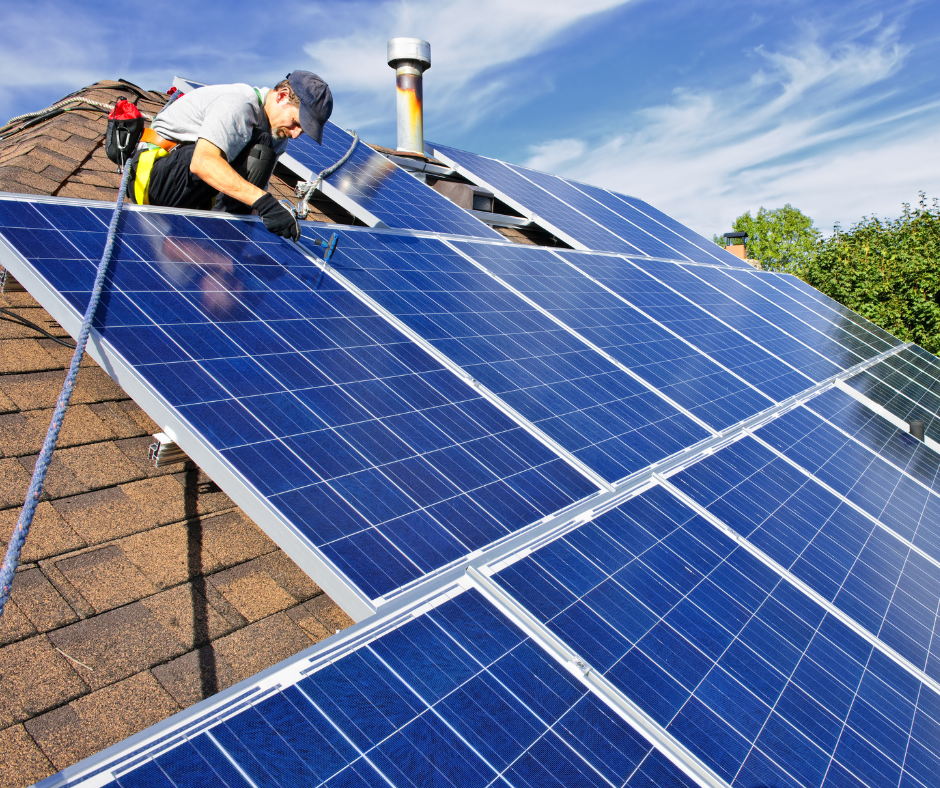Many households have been feeling the pinch of rising prices, including the amount it costs to heat or cool your home. Fortunately, there are cost-effective solutions to implement no matter the season – from chilly nights to hot summer afternoons.

Creating an energy-efficient home can go a long way towards saving money and improving comfort.
“These small changes don’t just help improve home functionality in the colder months, they can also help Australians save money over the year round,” says Chris Kerr, CEO of Clipsal by Schneider Electric.
It’s no secret that power usage increases during the cooler months as people look to warm up their homes. This happens in warmer months too, with power usage going up due to the increased use of air-conditioning. In fact, energy prices are forecasted to jump 56% in Australia over the next 12 months.
Chris has shared five budget and environmentally-friendly savings tips to help reduce energy usage and lower bills all year long.
Hack 1: Sustainable trans-seasonal energy usage
To make your home sustainable all year round, you first have to identify unnecessary points of energy usage throughout the home. This includes air conditioning, especially when you’re in another room and not using it, as well as washers and dryers that can be limited to use once a week with heavier loads. Then, you can automate the high energy household items you’ve identified so they only turn on when you need them. This ensures your home operates at its peak performance and efficiency while avoiding any money or energy wastage.
A simple option is to ensure that your blinds and lights are automated to follow sun patterns, keeping the warm air in and cool air out.
Hack 2: Keep mornings energy efficient
There is nothing like a warm towel after a hot shower on a chilly morning or waking up in a temperature-controlled room in the summer.
With home automation, towel warmers can be set to turn on automatically so you don’t have to worry about wasting energy by leaving your towel rail on overnight or throughout the day. Smart homes should work with you, and there are products that give you the opportunity to ease into the day by taking control of those small elements, such as automating your air conditioners to switch on when needed and off when not required, saving any excess use of power.
Hack 3: Energy saving and cost-efficient quality time
Smart technology can give you an elevated experience with lighting, music, as well as automatic and on-command heating functions that align with your needs. However, with appliances around the home being used more frequently, it is important to check that your switchboard can handle the extra strain. Checking your switchboard now will save you time and money down the road.
Hack 4: Keep comfort and cost-saving a priority
Creating an intimate space to suit your lifestyle across different seasons doesn’t mean you have to upgrade everything all at once or spend excessively. More often than not it simply means choosing alternatives. As warmer days approach, you might want to reach for your air conditioner, but there are plenty of mindful options that can save you money while still keeping you comfortable.
These include double-glazing windows to act as insulators, using warm colour palettes, and investing in some cosy blankets and thick rugs during cooler months to create a cosy environment. Blockout blinds are also a great option that keeps you both warm and cool depending on the season, while allowing you to make the most of the morning sun. And remember, the automation option will take your mind off everything and pay for itself with energy savings no matter the time of year.
Hack 5: Optimise your solar system
With over one-third of Australian households having solar panels on their roofs, Australia has the highest residential solar penetration in the world. However, having solar panels doesn’t necessarily equate to lower energy bills. It’s important for solar system owners to adapt their habits to fully optimise their solar investment.
To maximise the benefits, shift your energy usage to daylight hours when your solar panels are producing electricity. This is known as self-consumption, where you directly use the abundance of solar energy being generated, reducing the need to purchase electricity from the grid at higher costs. So, whenever possible, schedule energy-intensive activities during the day, such as running appliances like washing machines, dishwashers, or charging electric vehicles.
Additionally, you can use timers and smart connected sockets to control the timing of certain devices. This enables you to automate when they turn on or off, ensuring they’re aligned with daylight hours. For instance, setting your pool pump, water heater, or air conditioning to operate during peak solar production periods instead of throughout the night.
For more information on home automation, visit clipsal.com/wiser.


